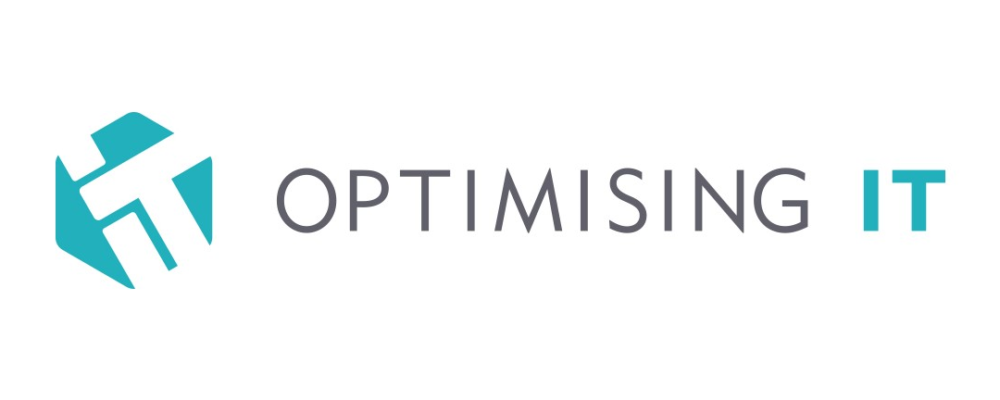Cloud services
Cloud hosting providers
Do you still run business-critical applications on-premise? The need for flexible and seamless capabilities with enhanced security is accelerating; a need on-premise technology cannot fully satisfy.
Cloud hosting is the key to your business’s future.
- Experience on-demand solutions
- Scale and adapt your IT systems with ease
- Enjoy cost-effective upgrades.
Our team has extensive experience in designing, implementing and supporting cloud environments through Microsoft Azure. We can take a project from early-stage concept all the way to completion and delivery.

78% Average First Contact Resolution
98.8% Average Customer Satisfaction Score
Rapid Response Time
Cyber Focused Approach
The service
What is cloud hosting, and how does Optimising IT help?
It’s common practice for businesses to store their IT systems on physical storage hardware — servers and computers. When you want to run an application or send an email, you load the software from your on-site hardware.
Cloud hosting takes your software applications and puts them online. Instead of accessing them through your physical storage, they’re located within the “cloud”. Cloud hosting is very similar to accessing a website. All the data you use is stored elsewhere — and not on your device — you simply press a button to access it using an internet connection.
Cloud hosting allows you to make your entire IT software system digital. No need for physical servers or storage devices anymore. All you need are screens and devices that can access the internet.
EXAMPLE OF CLOUD HOSTING
Your business is running Microsoft Windows with all the normal applications. When you load your computer, you load up the operating system and everything with it.
When you switch to cloud hosting, your Microsoft Windows software is no longer stored on your computer but stored using off-site cloud hosting services. Now you only need a monitor and a device that can access the internet. When you start your device up, you can log in to your cloud hosting services through the web and stream your Microsoft Windows operating system and applications to your monitor.
The features you access and the way you interact with them haven’t changed. The only thing that has changed is the hardware you’re using to access them. If the legacy hardware in your business were a DVD, then cloud hosting would be Netflix.

About the service
The benefits of cloud hosting services
ON-DEMAND AND REMOTE
Cloud technology can be accessed anywhere with an internet connection, so you can work from anywhere.
DYNAMIC AND SCALABLE
Cloud storage can be upgraded with the click of a button. No need to buy new servers or hard drives.
CYBER SECURE
Cloud hosting is safeguarded using state-of-the-art data protection technology.
COST-EFFECTIVE
With no servers to maintain or new hardware to buy, cloud hosting can help cut your purchase and running costs.
THE NEWEST AND FASTEST TECH
Cloud services are constantly being upgraded, giving you access to the latest software.
DISASTER RECOVERY
In the event of a disaster, all your data and applications are protected by automated cloud backups.
FREQUENTLY ASKED QUESTIONS
FAQ: Cloud hosting
What is cloud hosting?
Cloud hosting is where you run a traditional “server”, like a file server or a database server, but in a provider’s cloud, like Microsoft Azure. You manage it the same way you would a physical or virtual server in your office.
What is cloud computing?
Essentially the same as cloud hosting. Cloud computing is effectively paying a subscription in return for processors, memory, disk space and network connectivity — all computing resources. You can often also pay a subscription for an operating system license, like a Microsoft Windows server. In some cases, if you already have the appropriate licensing in place, you can bring your own.
However, you don’t always have to run servers to provide the “services” that you want to use (more on that in the next section).
You can also run firewalls and appliances in the cloud. This is particularly useful if you want to have specific security capability in the cloud like you have on-premise.
What is the difference between cloud computing and cloud services?
Cloud computing involves consuming specific resources to run some sort of server. You run servers, not for the sake of it but to run some sort of “service” on top of it, like a web server or database server, such as Microsoft SQL.
Great, but can I just get the service without the server? You can! Microsoft Azure and Amazon Web Services, as two examples, enable you to consume services without the need for any servers. You can have a cloud hosting service, a database server, file storage and backups without needing to have a server. That means you don’t need to manage it or pay for it!
What does SaaS mean?
SaaS means “Software as a Service”. Much like cloud hosting, you pay a subscription and get access to a particular set of software and capabilities. The Microsoft 365 suite or Microsoft Dynamics 365 are examples of SaaS.
What can I do with cloud hosting?
The same things you can do with traditional on-premise servers and infrastructure, but physically hosted and located in a provider data centre. You also get added benefits, such as scaling, increased opportunity to maximise Disaster Recovery and pay for consumption model, rather than needing massive upfront investment and to size for three years out.
When should I use cloud hosting?
Five years ago, if someone asked us if they should use cloud or a traditional on-premise server in the corner of the office, the answer was always, “It depends.”
Now, with high-quality internet access and large scale flexible working, cloud hosting is the only option.
Do I need a cloud service for cloud hosting?
Not if you can help it. If you can get the service you require (like email or file sharing) without needing a server, don’t have the server!
How does cloud hosting work? Where is the data kept?
Cloud hosting is all about off-site data storage and retrieval.
Your applications and the data within them are housed on off-site servers maintained by industry experts. Your data is not stored in an intangible cloud but on physical hardware managed by somebody else — usually large corporations with the latest and most powerful data storage technology.
You can then “stream” your applications from these servers.












